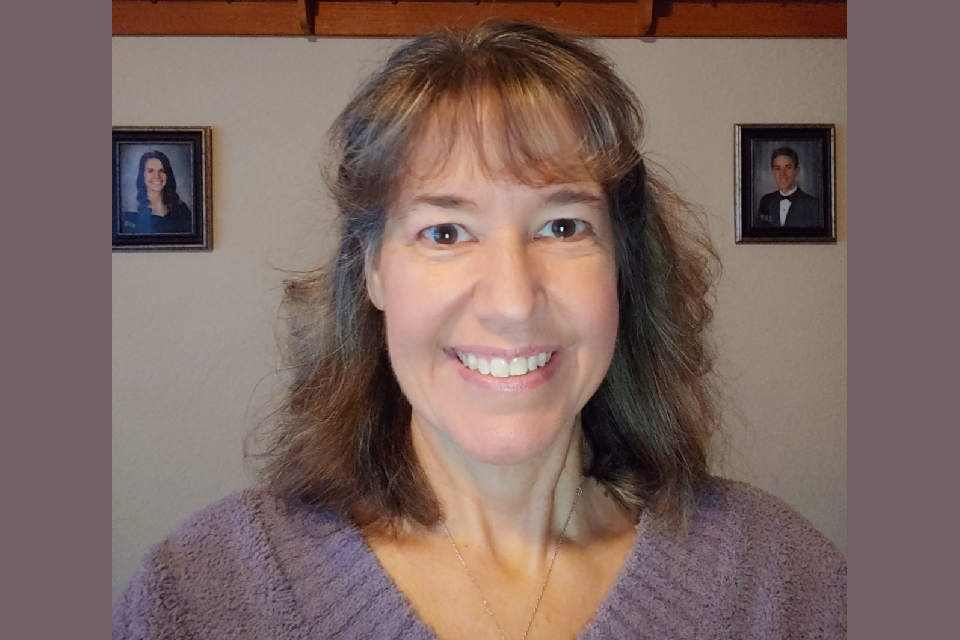Four Things I Learned Fighting Colon Cancer
Written by: Karen Fisher, PharmD, Class of 1997
In the summer of 2020, I was diagnosed with colon cancer. I was 54, had no family history, and showed no symptoms. I had been running 5K’s for two years and was otherwise healthy.
I only found out because I have been donating blood since college. When I donated in May 2020, my hemoglobin levels were low, so I was deferred – a first for me. I saw my primary care doctor, who ordered lab tests and found that I had severe iron deficient anemia. He referred me to a gastroenterologist, who found a 5 cm mass in my colon. She referred me to a surgeon, who referred me to an oncologist to have a PET scan for staging. It was quite a whirlwind of appointments in a world I was not really familiar with.
We learned about cancer and chemotherapy in pharmacy school, but this was very overwhelming. Since the PET scan showed that the cancer had not spread outside my gastrointestinal tract, I was scheduled for a right hemicolectomy. I had half of my colon removed in July 2020 and am fully recovered. (My son says I’m now a semicolon.)
It was determined that I was stage 2A with no high-risk indicators. I decided not to receive chemo since it is optional for stage 2 with a less than 5 percent increased benefit with chemo versus no chemo. My oncologist at Moffitt Cancer Center in Tampa, Fla., supported my decision since I am at low risk for recurrence.
Throughout this experience, I learned four lessons and pieces of information that I hope to pass on to others.
#1: Get a Colonoscopy
Please go get a colonoscopy if you are over 45, even if you have no health issues. I never had a colonoscopy at age 45 as recommended because I was too busy with work and kids. If you are younger than 45 and have a family history or any symptoms such as: a change in bowel habits, constipation or diarrhea, abdominal pain, nausea or vomiting, loss of appetite, overly tired, shortness of breath, weight loss, or dark or bloody stools, then definitely go get a colonoscopy.
#2: Support Groups
I found a fantastic support group on Facebook called Colontown, a non-profit, private online community for colorectal cancer (CRC) patients, survivors, and care partners. Everyone is placed in the main Colontown group and there are many separate “neighborhoods” you can also be placed in depending on the details of your story. There are ones for age, gender, stage, side effects, clinical trials, and geographical location to name a few. I was even able to meet two local members for lunch after joining.
Colontown has been a great learning resource. There is a member of Colontown who is a doctor and very helpful at explaining things. They even created Colontown University for educational purposes. You can find out more information at Colontown.org.
#3: Liquid Biopsy
There is a new test approved in 2019 that will be huge going forward in the surveillance of cancer patients called a liquid biopsy. This is a blood test for circulating tumor DNA (ctDNA). They take a sample of your tumor and identify its DNA. Then they take blood samples at regular intervals to look for that DNA in your blood. Studies have shown that most patients with positive ctDNA results will have a recurrence of their cancer, but ctDNA will be positive months before anything shows up on a scan so treatment can start sooner. Patients with negative results are less likely to have a recurrence.
At Moffitt Cancer Center where I have been treated, I have used Signatera for their ctDNA tests, but I believe there are others out there. I have had four negative Signatera test results so far.
#4: Donate Blood
There is always a critical need for blood donation, especially with COVID-19 keeping many people home. You may save your life in addition to other lives.

